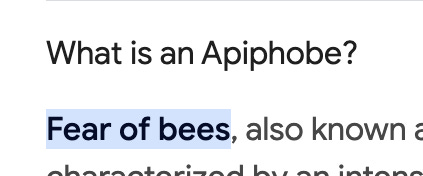This week’s been quite full, with a fair amount of catching up to do following the book fairs in Bergen and London. And it’s been a ‘week in the life of a freelancer’ with all the things that encompasses, including: a nice mix of copywriting, editing, and proofreading for client projects; a lovely quarterly goal-setting session with WILD coworking; and a breakfast ‘not-networking networking’ event (free coffee! nice chats!) … what else? I got my hair cut and did my taxes.
And, of course, what has been common every day this week, as with all my weeks, is that the things that have caught my attention are word-related: news and views and ideas about language. So, I thought I’d give you a rundown of these, picking one thing that stood out to me each day this week. *However, I’ve only written as far as Monday because, as you’ll see – this post wound its way into an AI labyrinth.*
Monday: apostrophe controversy
Poet Laureate Simon Armitage posted a photo of Taylor Swift's The Tortured Poets Department album cover on Instagram with the caption: ‘It’s only through torture that we know where the apostrophes go.’ Which was … disappointing. And, justifiably, he faced a backlash of comments in protest, which prompted him to edit the caption to add: ‘(Later thought: well, if it definitely means THAT, but definitely doesn’t mean T’OTHER, thanks for clarifying).’
I’m glad he did go back to edit his original caption, but it still bothered me throughout the whole week, because:
a) the title is totally fine without an apostrophe. This New York Times article says it best, especially via these great snippets from Erin Weinberg, English Lit Instructor at the University of Manitoba:
‘be aware that the consensus of professional grammarians is: It’s really up to Swift.
First off, none of the possible titles is wrong. “Each version is grammatically correct, but conveys its own unique meaning,” Weinberg said.
And grammarians say not only that Swift has the choice of which to use, she probably also has chosen the right one for her intended meaning.’
…
Weinberg likes Swift’s choice as well: “I’d like to think of the tortured poets collectively hanging out together in a department of their own, a space to feel their feelings and write about them in a supportive environment.”
b) apostrophe shaming isn’t nice … and if you do it, you’ll likely be the one who slips up. As Muphry’s Law states: “If you write anything criticising editing or proofreading, there will be a fault of some kind in what you have written.”
With apostrophes especially, let’s all show empathy: in English, who hasn’t written a ‘hovering’ apostrophe in a Happy Mother’s Day or Valentine’s Day card because we’re not completely certain which side of the s it should fall? Who hasn’t sometimes typed its when it should be it’s?
c) would he have said the same if it was the title of, e.g., a book by a man?
Beta AI has something to say
As I was writing this Substack post, Grammarly popped up to tell me that I should take another look at my use of the word apostrophe:
What in the apophobe does it mean? I asked ChatGPT, who, it seems, decided to troll me:
When I turned to our trustier(?), rustier friend Google, it denied all knowledge of apophobia:
Could it be a fear of me?! No, it’s a fear of bees:
With the apophobe AI oddity having totally derailed the post I first set out to write you, I wondered if there was somehow a way to link bees with apostrophes? To try to get back to where I’d begun. Of course, there is a way. I googled ‘bee’s knees apostrophes’ as I was pretty sure there’d be some discussion on whether it should be bee’s or bees’. Sure enough, the first result gave me what I was looking for:
This google result is from The Mix, a Substack by Robert Simonson, who is a cocktail writer for The New York Times. His recipe for a Bee’s Knees contains gin*, lemon, and – as you might expect – honey**.
With it being a Saturday night, that seems a good place to leave this post: I’m going to fix myself a Bee’s Knees cocktail, listen to Taylor Swift’s new album, and think about whether I feel apophobic.
* could be made with alcohol-free gin
** also, in a full circle, my day today started with a chat with a friend about another honey-based drink: mead. Wikipedia tells me that in Norse mythology, there is a drink called the Mead of Poetry, which ‘crafted from the blood of Kvasir (a wise being born from the mingled spittle of the Aesir and Vanir deities) would turn anyone who drank it into a poet or scholar’.
It sounds exactly the sort of tipple they’d be drinking in The Tortured Poets Department.









Chuckling at the ChatGPT trolling! And I’d never heard of Muphry’s Law - how delightful :)